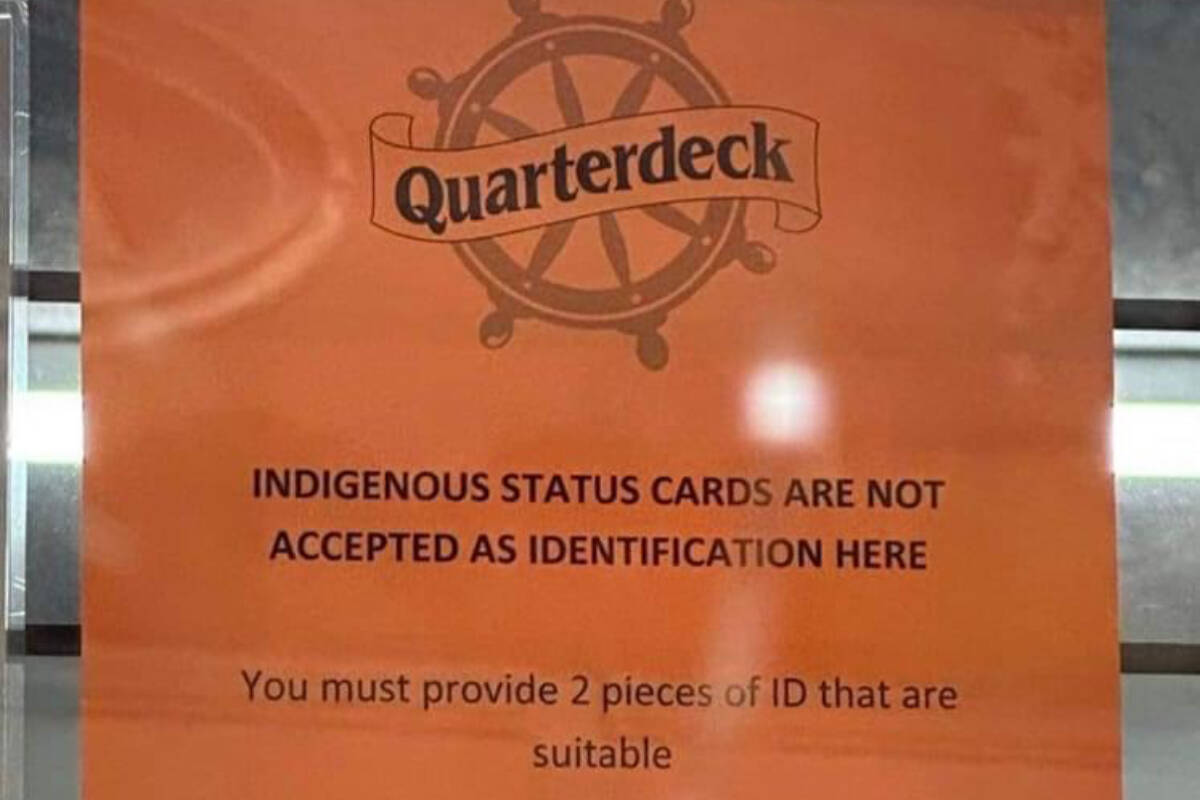The Quarterdeck Beer and Wine store in Port Hardy is under fire for stating on a sign that Indigenous status cards will not be accepted as a form of identification.
The sign was spotted by customers hanging behind the liquor store sales counter. A photo was posted on social media on Wednesday (Jan. 18), causing an uproar online from all of the North Island communities and beyond.
When contacted by the North Island Gazette, the Quarterdeck’s Marina and Beer and Wine manager Shiela Daly issued an apology.
“The sign went up before I became manager so I took it down immediately this morning,” Daly said.
“We feel bad, I didn’t even know it was there.”
The Gazette reached out for statements from the Kwakiutl First Nation Elected Chief Grace Wilson, as well as the Gwa’sala-‘Nakwaxda’xw First Nations Elected Chief Terry Walkus.
Walkus said in a phone interview that it was “upsetting to our Nation and our leadership” to see pictures of the sign being shared on social media, “but what was more disturbing was the colour of the sign, orange and black, which we use for our Every Child Matters Orange Shirt Day campaign.
“I don’t know if they did that intentionally but it feels like a kick in the face to us. Why would you use those colours?”
Canada began issuing the Certificate of Indian Status as an official identity document confirming the cardholder to be registered under the Indian Act in 1956.
The status card is an official government-issued identity document and is issued through more than 600 band offices across Canada.
Currently, there are two types of status cards: older versions which are laminated with name, birthdate and registration number listed and new cards with a hologram appearing.
In a recent survey, a majority of Indigenous respondents said they have faced racism when trying to use a status card as a form of identification. Respondents to the survey said they often experience anxiety before using their status cards and sometimes avoid using them altogether to prevent a potentially-negative interaction. Other times, respondents said they will bring someone else along for support, or find themselves acting particularly courteous to staff.
Maxwell Johnson and his granddaughter Tori-Anne, from the Heiltsuk First Nation in Bella Bella, were handcuffed back in 2019 in downtown Vancouver after trying to open a bank account for her at the Bank of Montreal (BMO) using an older laminated status card.
Johnson and the Nation won settlements against both BMO and the police over the incident, and he and his granddaughter were also issued a formal apology from both the bank and the police.
@NIGazette
editor@northislandgazette.com
Like us on Facebook and follow us on Twitter

